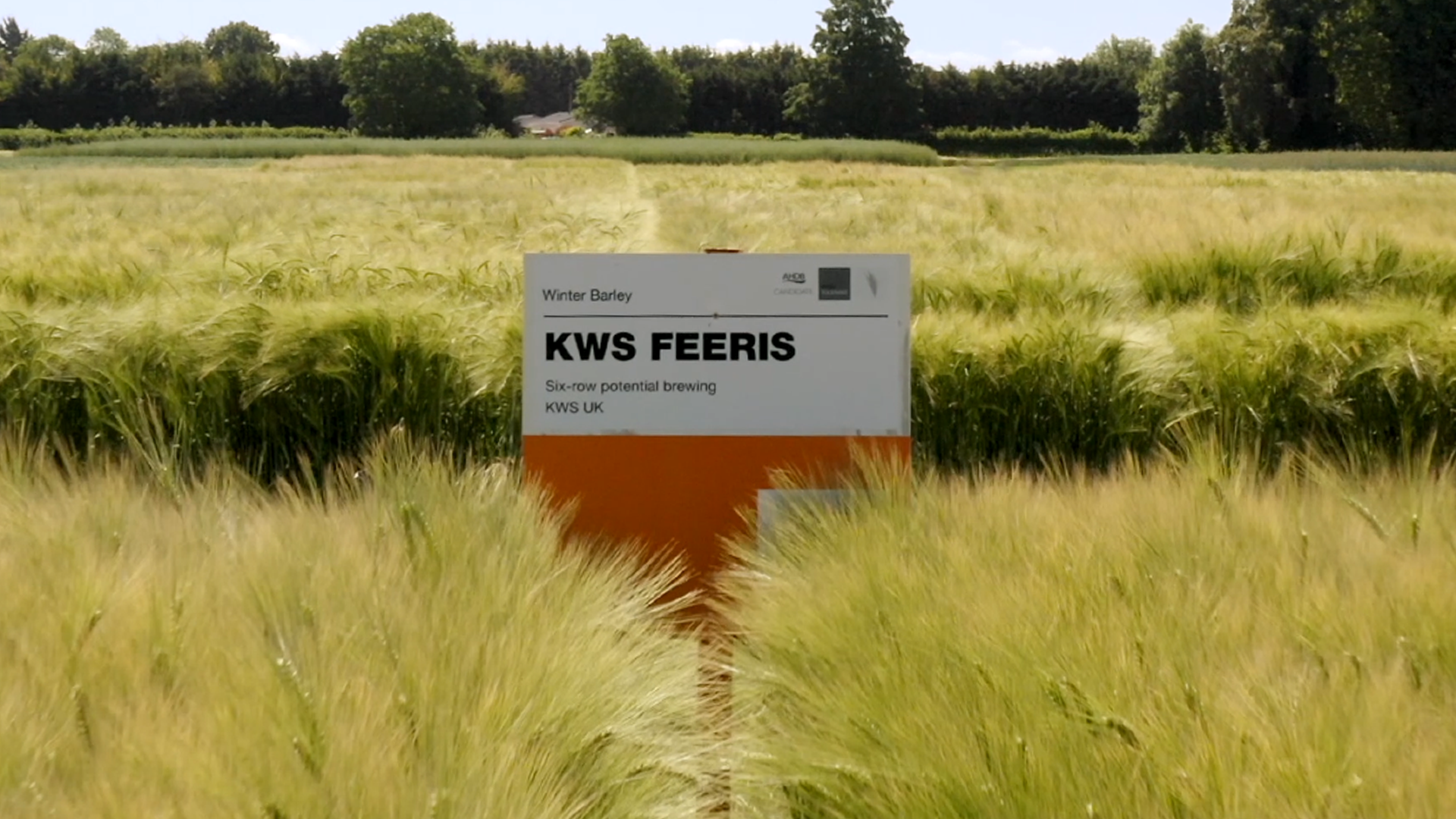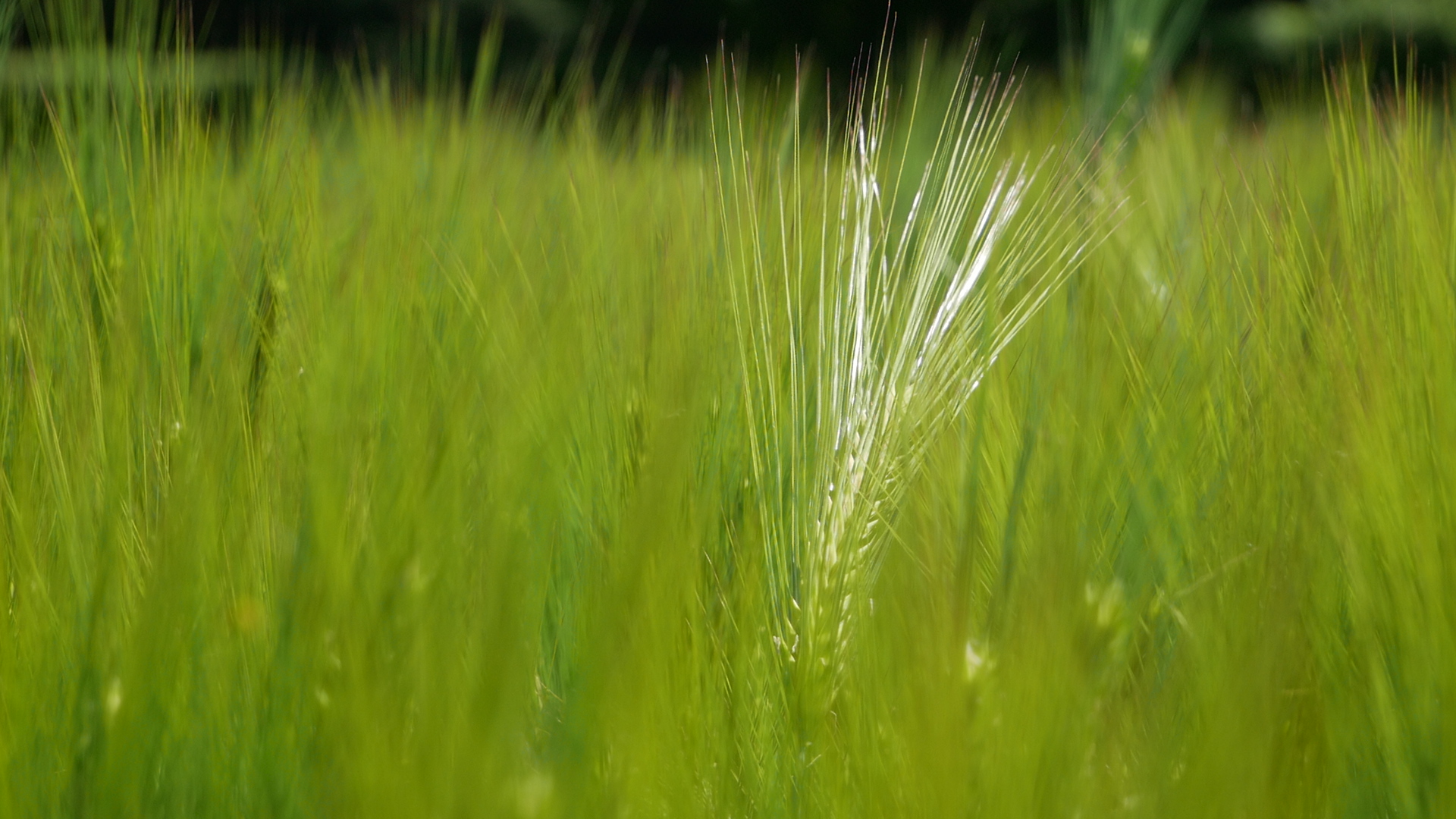Is this new six-row the ultimate sustainable barley?
The UK area of winter barley has remained broadly stable at around 400,000ha in recent years but this could be about to change, believes KWS UK Cereals Product Manager Dr. Kirsty Richards.
"With increasing input costs and massive grain price volatility many growers are looking to minimise outlay and mitigate risk and winter barley offers a wealth of management, economic, operational and rotation benefits to help them do that.
"Drilled in late August and early September, winter barley, for example, takes some of the pressure off when drilling winter wheat, the key crop on many arable farms.
"Given the often-challenging weather conditions at this time, that’s a real benefit in ensuring the planned area of autumn crops is established successfully.
"This timeliness advantage extends through to the spring, as the crop reaches its optimum timings for T0, T1 and T2 applications approximately two to three weeks before winter wheat, helping to spread the sprayer’s workload and achieve optimum spray timings for the winter wheat."
Early harvesting potential
Earlier harvesting is another major advantage in favour of winter barley as it reduces the pressure in terms of combining following crops and potentially avoids harvesting delays as the weather worsens at the end of the season, she says.
"Being the first of the new season cereals to be combined winter barley also creates significant marketing opportunities as there is often a range of diverse homes for it depending on region and usually several off-combine export opportunities.
"This frees up valuable storage and helps cash flow, while the value of the straw can provide a useful financial boost."
While the area of oilseed rape grown in the UK has diminished from its peak, for many farms the crop is difficult to replace in the rotation and barley has a role to play here too, Kirsty Richards adds.
"To avoid the worst effects of cabbage stem flea beetle those who have stuck with it are tending to drill earlier.
"Research by KWS highlights the importance of hitting the prime early-August drilling slot showing an average 0.5t/ha yield loss when sowing is delayed by 10 days.
“With increasingly variable autumn weather, winter barley can help ensure oilseed rape is drilled at the best time, helping to secure its future.
"Five years of trials at the KWS Cambridge-based PDF east trials site showed that winter barley and winter wheat averaged the same 11t/ha yield and new varieties of winter barley will further increase the attractiveness of this sometimes-overlooked crop."
KWS Feeris provides an excellent example of a well-rounded feed barley variety and is perhaps the ultimate risk management tool for those looking to drill early, says KWS UK country manager Will Compson.
"For a host of reasons, KWS Feeris is particularly well-suited to the low input and regenerative farming systems that are becoming increasingly favoured by those looking to reduce inputs and the carbon intensity of crop production.
"The first RL-listed winter barley to benefit from KWS’ Sowing for Peak Performance (SPP) breeding initiative, KWS Feeris signals a new level of agronomic strength and risk management for UK growers.
"Bringing the best of conventional 6-row winter barley yields to the Recommended List it has the additional benefits of BYDV tolerance and strong overall disease resistance.
"Whilst yield is usually the topic that excites growers the most, some of the biggest advances are now in the shape of crop functionality and resilience to cope with increasingly variable growing conditions.
“With aphid-borne viruses increasingly difficult to control, KWS Feeris’ tried and tested BYDV tolerance will be a real benefit in many situations, bringing new levels of disease resistance to winter barleys without compromising yields.
Exceptional consistency
Like other 6-row barleys, KWS Feeris has excellent yield potential, producing 103% of control yield for the whole of the UK, he explains.
"Furthermore, these yields have been delivered with exceptional consistency over the very contrasting seasons.
"Traditionally, high-risk BYDV regions of the UK are the coastal areas of the South, South East and South West.
"However, following the ban on seed treatments, when the autumn and early winter periods are mild then any area of the UK can be decimated by this virus.
"Genetic tolerance or resistance to BYDV offers growers in aphid prone areas an invaluable risk reduction tool and will also be essential for those looking to drill their winter barley early and as a key part of an IPM strategy
"As part of a good all-round disease package, in addition to BYDV tolerance and BYMV resistance, KWS Feeris scores 6 for both Rhynchosporium and net blotch.
"It stacks up very well with other 6-row winter barleys in terms of overall agronomic features, which is borne out by an untreated yield 85% of controls.
"Although reasonably tall at 95cm, KWS Feeris is 5 - 10cm shorter than many commercial hybrid 6-rows and its stiff straw will benefit many growers, especially where blackgrass is prevalent.
"It has similar maturity to KWS Orwell and produces good quality grain with a high specific weight (69.5kg/hl) and low screenings.
"Agronomically a very strong variety, KWS Feeris is an excellent risk management tool for barley growers in high pressure hotspots and those looking to push drilling as early as possible.
In the case of KWS Feeris, its BYDV tolerance will provide growers with peace of mind in knowing that they will not have to worry about infection in the autumn. Large falls in commodity prices since last year have led many farming businesses to focus on de-risking all aspects of their operations.
According to Nigel Britland, Commercial Manager - East for Wynnstay, the third largest producer of cereal seed in the UK, KWS Feeris is a very exciting opportunity for growers
"The variety has created a great deal of interest in the last year as a conventional six-row which combines excellent yields with strong agronomic characteristics and built-in BYDV tolerance and BYMV resistance it represents
“As an industry, farming has already lost access to a wide range of active ingredients and with legislation going the way that it is one can imagine the time will come when growers will not be able to apply insecticides to their crops.
"Therefore, it makes sense to start investigating alternative approaches and evaluating new advances in plant genetics which provide protection sooner rather than later.
“The additional £45 per hectare per year payment available under the Sustainable Farming Incentive (SFI) for not using insecticides provides further encouragement to choose varieties with inbuilt resistance or tolerance to pests and diseases.
"In the case of KWS Feeris, its BYDV tolerance will provide growers with peace of mind in knowing that they will not have to worry about infection in the autumn.
“Large falls in commodity prices since last year have led many farming businesses to focus on de-risking all aspects of their operations.
"Given the very high levels of foliar disease issues this season utilising new technologies which help to avert risk and cost in this area must represent a step in the right direction.
More sustainable winter barley
Winter barley growers looking to diversify the varieties which they grow, reduce inputs and produce more sustainable winter barley crops should consider KWS Feeris, he believes.
"In addition to its excellent yields (103%), high specific weights and low screenings, it provides a good all-round disease package, including impressive 6s for Rhynchosporium and net blotch coupled with all-important BaYMV resistance and BYDV tolerance.
"This makes it ideal for growers in aphid prone areas and BYDV hotspots, or those looking to drill as early as possible. The fact that it is a reasonably tall variety will aid blackgrass control, but its stiff straw will benefit those on heavier land.
“It is noticeable that many growers are delaying decisions over which crops and varieties to grow for 2024 harvest beyond where they would normally, so we are expecting a rush of orders in the coming weeks.
“Last season, KWS Feeris seed was in short supply and looking at the winter barley multiplication area for this year it’s clear that there will not be enough to meet demand.
"Some cynics will say that is just a case of a supplier talking up the market, but that is not the case.
"The supply of in-demand varieties such as KWS Feeris will tighten very quickly, so my recommendation is that growers cover their requirements as soon as possible.”
Your consultants


